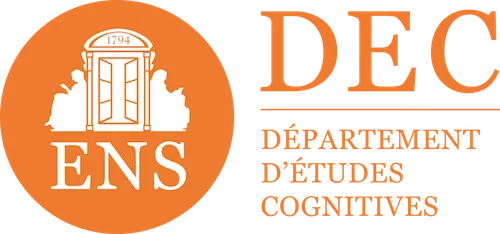

Learning Management System: Optimizations for Businesses
Let's imagine for a moment Thomas, training manager at InnovCorp, confronted with his morning routine: going through training reports and seeing, once again, that the use of his company's LMS is leveling off despite the investments made. Its collaborators seem to be in a hurry, without ever exploring additional resources that could lead to a significant increase in skills. Faced with this picture, Thomas wonders: how to transform this LMS into a vital learning center within InnovCorp?
This anecdote highlights a challenge that many professionals like Thomas face: the gap between the available digital training tool and its optimal use in business. How, then, can you optimize an existing LMS so that it becomes a learning and skills development engine, and not just an underexploited digital warehouse?
The central argument of this article is that a holistic strategy, based on an active partnership with the LMS provider, systematic integration with the company's digital infrastructure, and the intelligent use of automation and data, is crucial to maximize the impact of an LMS on the skills development of employees.
Digital awakening: Going beyond storage to engage competence
For over two decades, digital learning has shaped the evolution of corporate training strategies, but it is the thoughtful adoption and strategic implementation of LMSs that determine their success.
Rethinking LMS integration
Digital learning is well established in the corporate landscape, but the results are mixed due to often superficial integrations that overlook engagement and user experience. The key lies in strategic exploitation of LMS functionalities to initiate a real cultural transformation towards learning. For example, instead of simply publishing training videos, a business could enrich the learning experience by incorporating interactive scenarios and role-playing exercises. These activities would encourage collaborators to apply acquired knowledge and solve concrete problems, thus promoting in-depth understanding and long-term retention of content.
A versatile user experience
An optimal LMS not only adapts to the needs of the learner, but also to those of training designers and administrators. All features, from content creation to course management, should be built with the experience of each type of user in mind. For example, a well-designed LMS will allow a designer to easily customize training modules and an administrator to monitor learners' progress and manage enrollments, ensuring both simplified use and effective management. This was demonstrated by a company that, after reviewing the versatility of its LMS, noted a significant improvement in the speed of setting up training courses and better monitoring of learners' progress by trainers.
From tool to stratagem: Expanding the use of LMS for training without borders
In many cases, the traditional use of LMSs limited to storage functions results in missed opportunities for impact and professional development. Committing to a strategic review of their use is essential to fully exploit their potential.
Exceeding conventional usage limits
Traditionally, LMSs have been used by businesses as a simple repository for storing training modules. This limited approach reduces the platform to a passive space, lacking active support for learning and skills development. However, when you think of a company whose employees only use the LMS to passively consult training content without any interaction or practical application, you understand the magnitude of the missed opportunity.
When LMSs are relegated to the simple role of reservoirs for training content, the opportunity to achieve real change in training practices is missed. Undeniable progress has been made with the arrival of LXPs who have tackled engagement by offering much more learner-centered experiences. However, if skills development is the ultimate objective, further rethinking the use of LMS is fundamental to exploit their full potential and encourage progress.
An active partnership to master the LMS
Extending the role of the provider beyond technical support to a formative partnership can unlock unexplored LMS capabilities. Real onboarding and constant support allow all stakeholders to better understand and actively experiment with the various components of the system, to be in a position to use 100% and in the best way the full potential of the platform. For example, a manufacturing company would see significant improvements in the deployment of its safety training courses after coaching sessions from a customer success manager familiar with the sector, which would make it possible to effectively integrate interactive content and adequate practical evaluations.
Integration into the daily life of the business ecosystem
To promote the daily use of an LMS, it is essential to intertwine it fluidly in The digital ecosystem of employees. When an LMS is linked to the main communication and productivity tools, employees are more likely to use it regularly. It is therefore essential to choose or migrate to an LMS platform that can be deployed in a strategic complementarity with the other solutions already adopted in the organization, such as CRM, an ERP, an HRIS, instant messaging systems or various business applications.
Optimization through automation and AI
Automation and artificial intelligence don't just personalize learning; they are also transforming the creation of e-learning content, making it faster and accessible to everyone. Thanks to AI, business experts can now design training paths without requiring in-depth technical skills in instructional design, while ensuring relevant and personalized paths for each learner.
Already in some innovative businesses, AI-based tools have made it possible to effectively decentralize content creation by giving experts the ability to quickly generate training modules. This approach eliminated the need for long hours of development by e-learning specialists and made it possible to deliver targeted training courses that avoid wasting learners' time with content that was not adapted to their specific needs. Thanks to this evolution, these companies have seen a significant improvement in the effectiveness of training and greater satisfaction among their employees.
Data analysis for real-time adjustment
Data-centric culture allows to continuously refine the training offer. The observation and analysis of data relating to the use and effectiveness of training courses is crucial for the adaptation of content according to the needs of users. By readjusting its training courses to respond to the feedback of its employees, the company is causing a remarkable increase in the efficiency of its courses. It is therefore necessary to spend time looking for this data and going beyond the classic KPIs in order to truly understand and analyze what is happening. This work, which is sometimes too neglected, is just as important as the design. Again, a good LMS should simplify your task.
This strategy, organized around going beyond conventional uses, active partnership, systemic integration, automation and data analysis, forges an LMS capable of actively and effectively supporting the development of skills within the company.

Didask: Skills catalyst and LMS optimization architect
With the awareness of the limits of the traditional use of LMS and the strategies to optimize them, let's look at how Didask fits into this process of innovation and continuous improvement.
An ally in optimizing your LMS
Didask is designed to meet the contemporary challenges of digital training, by offering solutions that go beyond the traditional vision of LMS and catalyze the development of employee skills.
Assistance and expertise to exploit all the richness of the LMS
Didask is not limited to providing an LMS, but partners closely with companies to ensure total control of the tools offered. This platform offers a pragmatic support that goes beyond technical support, including onboarding and strategic training to exploit every feature of the system. She acts as a mentor for trainers, supporting them in the creation of interactive content and the implementation of innovative learning methodologies.
Intelligent integration into the digital business environment
Didask is distinguished by its ability to blend harmoniously into the digital landscape of businesses. By facilitating the connection with existing systems, such as Customer Relationship Management (CRM) tools or collaborative platforms, Didask becomes a natural extension of the workplace, making its use intuitive and essential to the daily life of employees. For example, very soon, after integrating Didask into their internal systems, employees will easily access tailor-made coaching from their instant messaging.
Automation and AI for tailor-made training
Didask's educational artificial intelligence is revolutionizing the approach to creating e-learning content. It allows designers, experts in the subject but not necessarily in pedagogy, to transform their raw content into interactive and engaging e-learning modules. Didask's AI assists this process by automatically structuring content into coherent instructional sequences, developing questions and assessment activities based on defined learning objectives.
For learners, this educational AI ensures real-time personalization of training courses. It analyzes responses and interactions to adjust the difficulty of the modules, suggest revisions (with flashcards for example) or suggest additional resources. Thus, each learner benefits from a unique path that automatically adapts to their level of understanding and mastery of the subject, facilitating optimal and continuous progress (see our article Adaptive learning, the El Dorado of commitment? Yes, but...).
Didask's AI is therefore positioned as a key facilitator in the training cycle. It eliminates the complexity of instructional design and offers learners a fluid, personalized and effective learning path, making access to knowledge more direct and skills development faster.
Data-based insights and improvements
Didask's educational artificial intelligence does not just collect data, but analyzes it to provide optimization recommendations. This ability to interpret learning trends in a meaningful way equips training managers with a powerful tool for proactive analysis. Indeed, Didask's advanced reporting and dashboard features aren't limited to displaying information; they discern patterns and suggest specific adjustments in terms of content, methodology, and learning paths. This pedagogical intelligence takes into account learners' interactions and performances to recommend specific improvements that can tangibly transform the training strategy. It thus allows companies to focus on the areas that will have the most significant impact on the skills development of their employees, optimizing the contribution of each training course to the company's overall strategy and saving valuable time by aligning efforts and results.
To conclude
In conclusion, the optimization of a Learning Management System in business is based on the control of its functionalities, a thoughtful integration into the daily environment of users, the strategic use of automation and an in-depth analysis of data for continuous improvement. Beyond technology, what is at stake is a transformation of mentalities and training practices, aimed at creating a dynamic of continuous learning, capable of engaging employees and strengthening their skills in a tangible and sustainable way. While the adventure of optimizing practices may seem daunting, we now have the means to turn this challenge into a growth opportunity. Didask is positioned as the ideal travel companion for businesses ready to take this step. With a user-centered approach to making learning more interactive, adaptable, and rewarding, Didask is not just a solution, it's a partner that evolves with the needs and goals of your organization.
For those who, like Thomas, want to see their LMS transform into a real dynamic learning platform, Didask offers the keys to open this door. If you are ready to take your LMS to the next level and realize the impact of your training strategy, discover how Didask can turn your vision into reality.
Make an appointment directly with our eLearning experts for a demo or simply more information.












